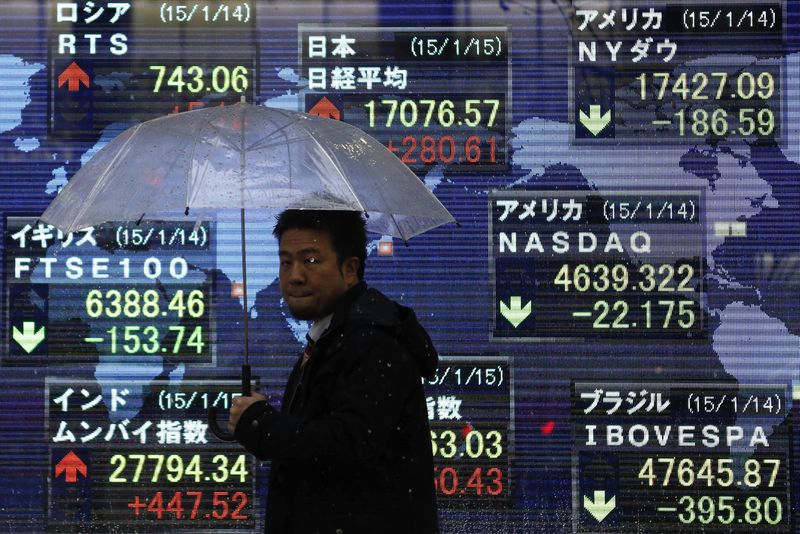By Gina Lee
Investing.com – Asia Pacific stocks were mostly down on Monday morning, with a potentially tighter U.S. Federal Reserve monetary policy weighing on sentiment. Investors also digested inflation data from Japan and Australia.
Japan’s Nikkei 225 was down 0.45% by 9:08 PM ET (2:08 AM GMT). The country’s manufacturing purchasing managers index (PMI) for January was 54.6, and the country also released its services PMI.
South Korea’s KOSPI slid 1.63%.
In Australia, the ASX 200 was down 0.39%. Australia released its own manufacturing and services PMIs, which were at 55.3 and 45, respectively. The consumer price index is due on Tuesday.
Hong Kong’s Hang Seng Index was fell 1.26%.
China’s Shanghai Composite was down 0.58% while the Shenzhen Component inched up 0.09%. Yu Yongding, a former member of the monetary policy committee of the People’s Bank of China, warned more government spending is needed to drive economic recovery as a looser monetary policy will not be enough.
With the past week being one of the worst for global shares since the onset of the COVID-19 pandemic, investors now await the Fed’s latest policy decision, which will be handed down on Wednesday. A key question is how a more hawkish Fed will impact fixed income, with U.S. Treasuries rallying after an initial fall at the beginning of the previous week. The benchmark 10-year yield inched up toward 1.77%.
There is also the risk that the Fed will tighten monetary policy more aggressively in 2022 than expected, Goldman Sachs Group Inc. economists warned.
The Bank of Canada will also hand down its policy decision on the same day.
Investors also await earnings reports throughout the week from companies including Apple Inc. (NASDAQ:AAPL), Boeing Co . (NYSE:BA), General Electric Company (NYSE:GE), 3M Company (NYSE:MMM), Deutsche Bank AG (NYSE:DB) NA O.N. (DE:DBKGn), Microsoft Corporation (NASDAQ:MSFT), Samsung Electronics (OTC:SSNLF) Co. Ltd. (KS:005930), and Tesla Inc. (NASDAQ:TSLA)
There is “likely a longer-term rotation toward value stocks measured in quarters, not weeks” unfolding, Evercore ISI chief equity and quantitative strategist Julian Emanuel said in a note.
“Investors should retain a balanced view, staying patient in committing new capital to equities.”
A less accommodative Fed is also among the reasons why “you have a re-rating going on and certainly a bit of a, excuse the term, puking of some of the higher-spec, lower-quality segments of the market,” Charles Schwab (NYSE:SCHW) & Co. chief investment strategist Liz Ann Sonders told Bloomberg.
Meanwhile, U.S.-Russia tensions over Ukraine are also on the radar, with the U.S. ordering family members at its embassy in Kyiv to leave Ukraine.
On the data front, the U.S.’ fourth-quarter GDP, pending home sales and core durable goods orders are due on Thursday.
